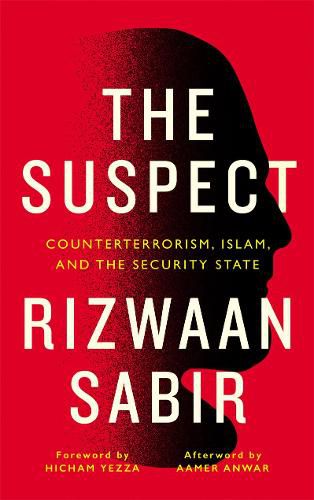Readings Newsletter
Become a Readings Member to make your shopping experience even easier.
Sign in or sign up for free!
You’re not far away from qualifying for FREE standard shipping within Australia
You’ve qualified for FREE standard shipping within Australia
The cart is loading…






‘An instant classic. Sabir is an inspiration’ Arun Kundnani, author of The Muslims are Coming!
What impact has two decades’ worth of policing and counterterrorism had on the state of mind of Muslims in Britain? The Suspect draws on the author’s experiences to take the reader on a journey through British counterterrorism practices and the policing of Muslims.
Rizwaan Sabir describes what led to his arrest for suspected terrorism, his time in detention, and the surveillance he was subjected to on release from custody, including stop and search at the roadside, detentions at the border, monitoring by police and government departments, and an attempt by the UK military to recruit him into their psychological warfare unit.
Writing publicly for the first time about the traumatising mental health effects of these experiences, Sabir argues that these harmful outcomes are not the result of errors in government planning, but the consequences of using a counterinsurgency warfare approach to fight terrorism and police Muslims. To resist the injustice of these policies and practices, we need to centre our lived experiences and build networks of solidarity and support.
$9.00 standard shipping within Australia
FREE standard shipping within Australia for orders over $100.00
Express & International shipping calculated at checkout
‘An instant classic. Sabir is an inspiration’ Arun Kundnani, author of The Muslims are Coming!
What impact has two decades’ worth of policing and counterterrorism had on the state of mind of Muslims in Britain? The Suspect draws on the author’s experiences to take the reader on a journey through British counterterrorism practices and the policing of Muslims.
Rizwaan Sabir describes what led to his arrest for suspected terrorism, his time in detention, and the surveillance he was subjected to on release from custody, including stop and search at the roadside, detentions at the border, monitoring by police and government departments, and an attempt by the UK military to recruit him into their psychological warfare unit.
Writing publicly for the first time about the traumatising mental health effects of these experiences, Sabir argues that these harmful outcomes are not the result of errors in government planning, but the consequences of using a counterinsurgency warfare approach to fight terrorism and police Muslims. To resist the injustice of these policies and practices, we need to centre our lived experiences and build networks of solidarity and support.